Vayots Dzor – language, blue lakes and patched
21.09.2021
I stayed in Artavan for 2 nights to do another day tour and experience more village life.
The tour went to a lake (Hayeli lake) and I passed a smaller unnamed lake. They shone so blue and inviting that I would have liked to jump in. But it was too boggy and there were too many shepherds etc. on the road. Earlier in the year everything around the lakes is obviously green, now in autumn it’s ochre. Which I personally like better.
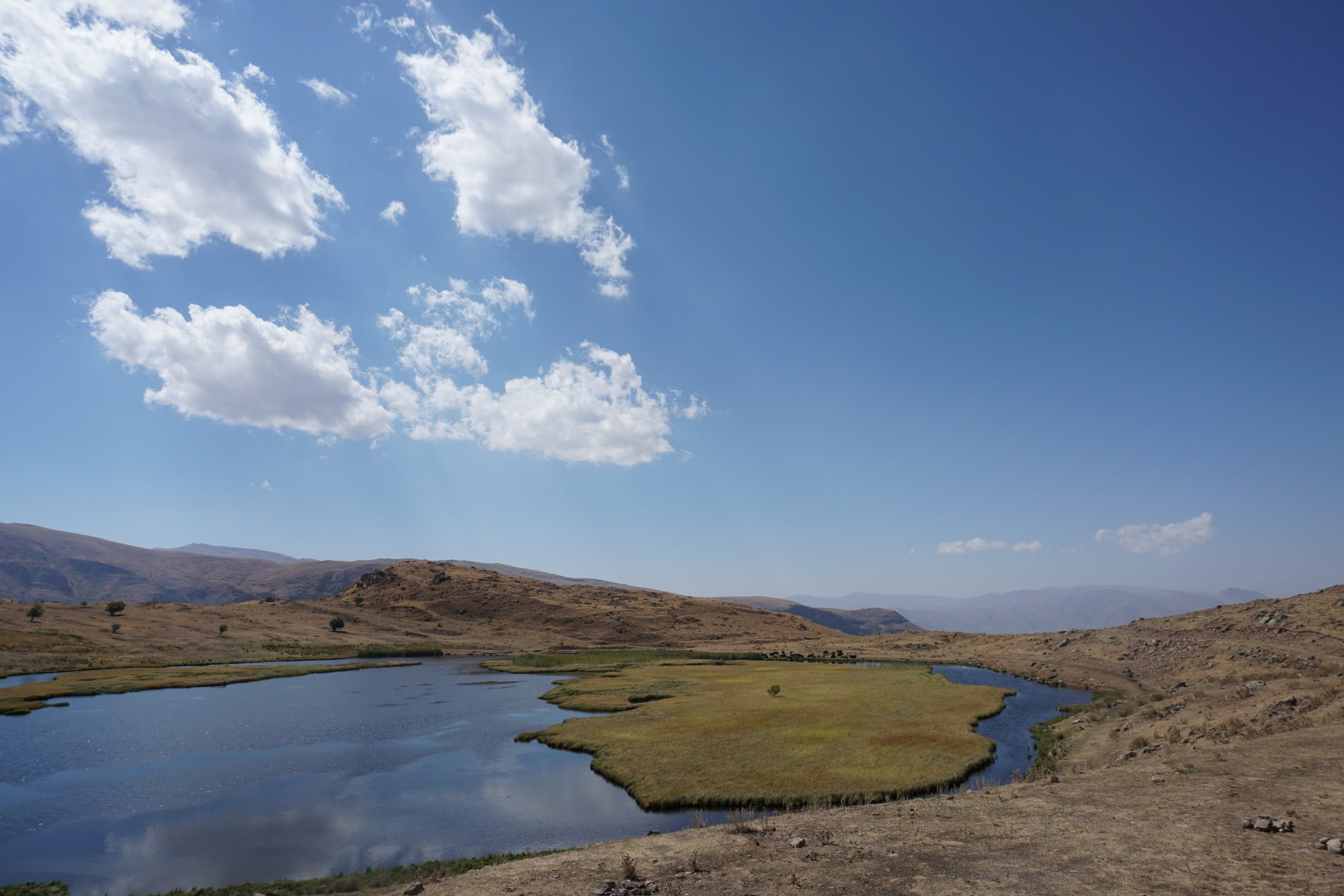 Hayeli lake
Hayeli lake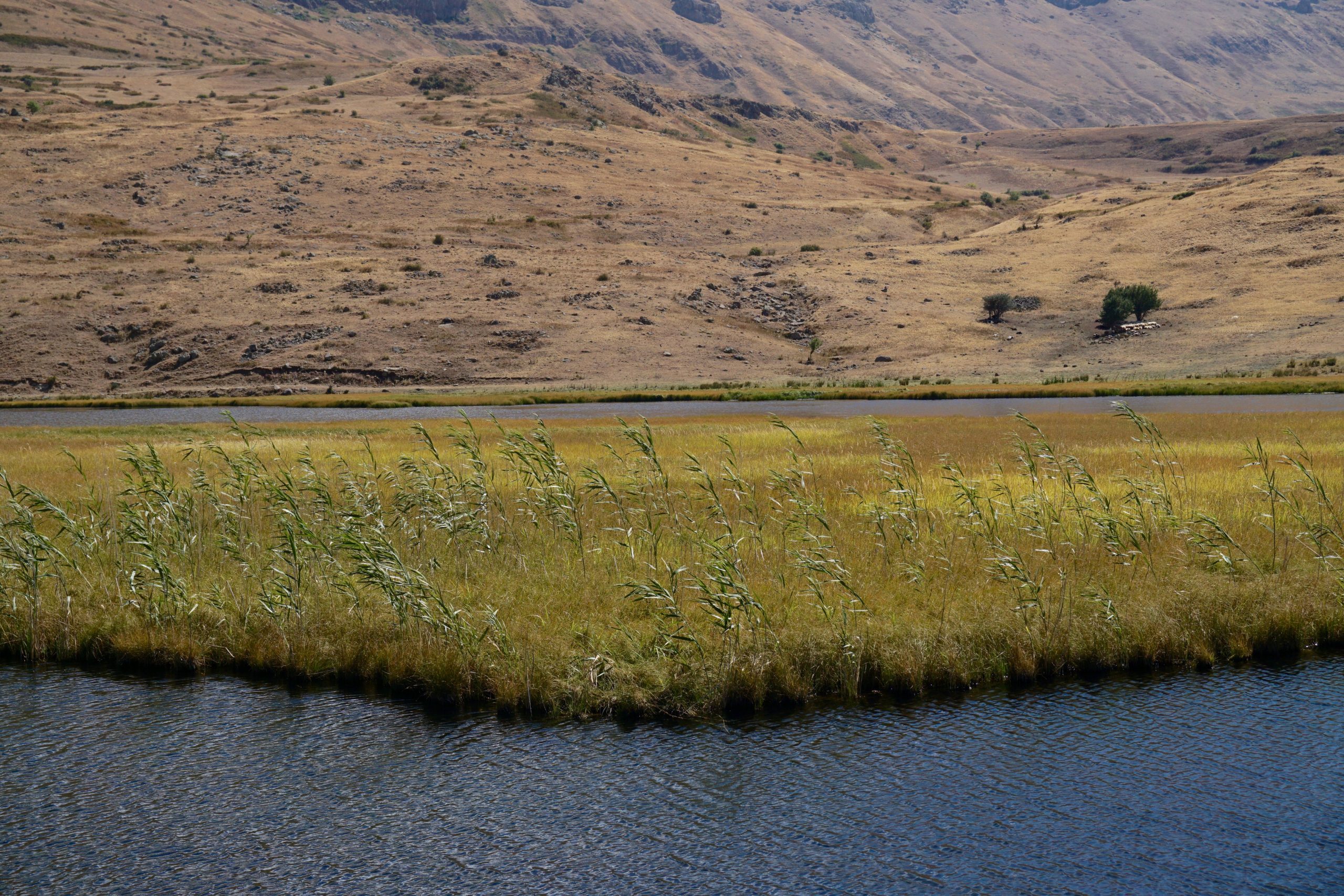 green small island in Hayeli lake
green small island in Hayeli lake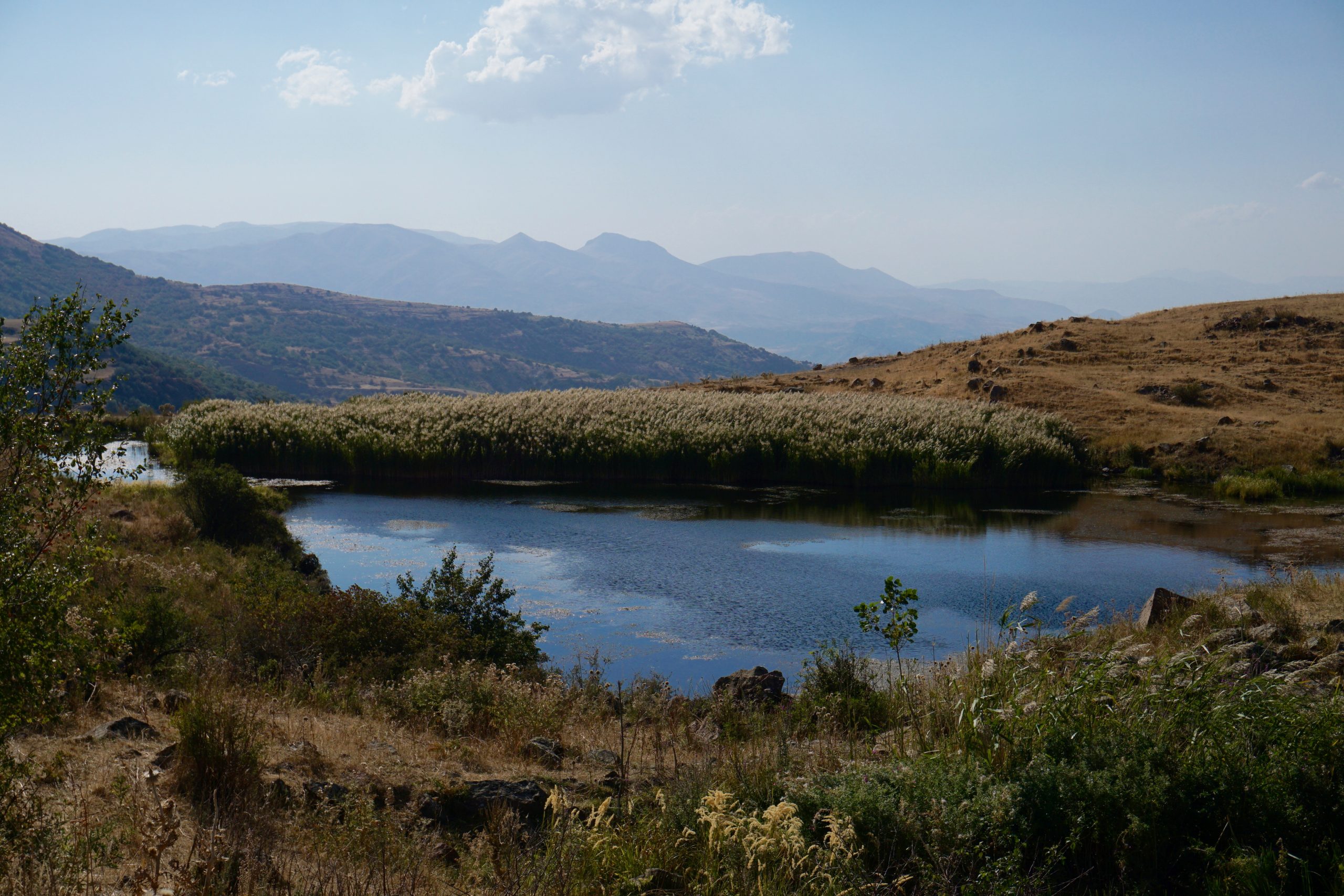 smaller lake
smaller lake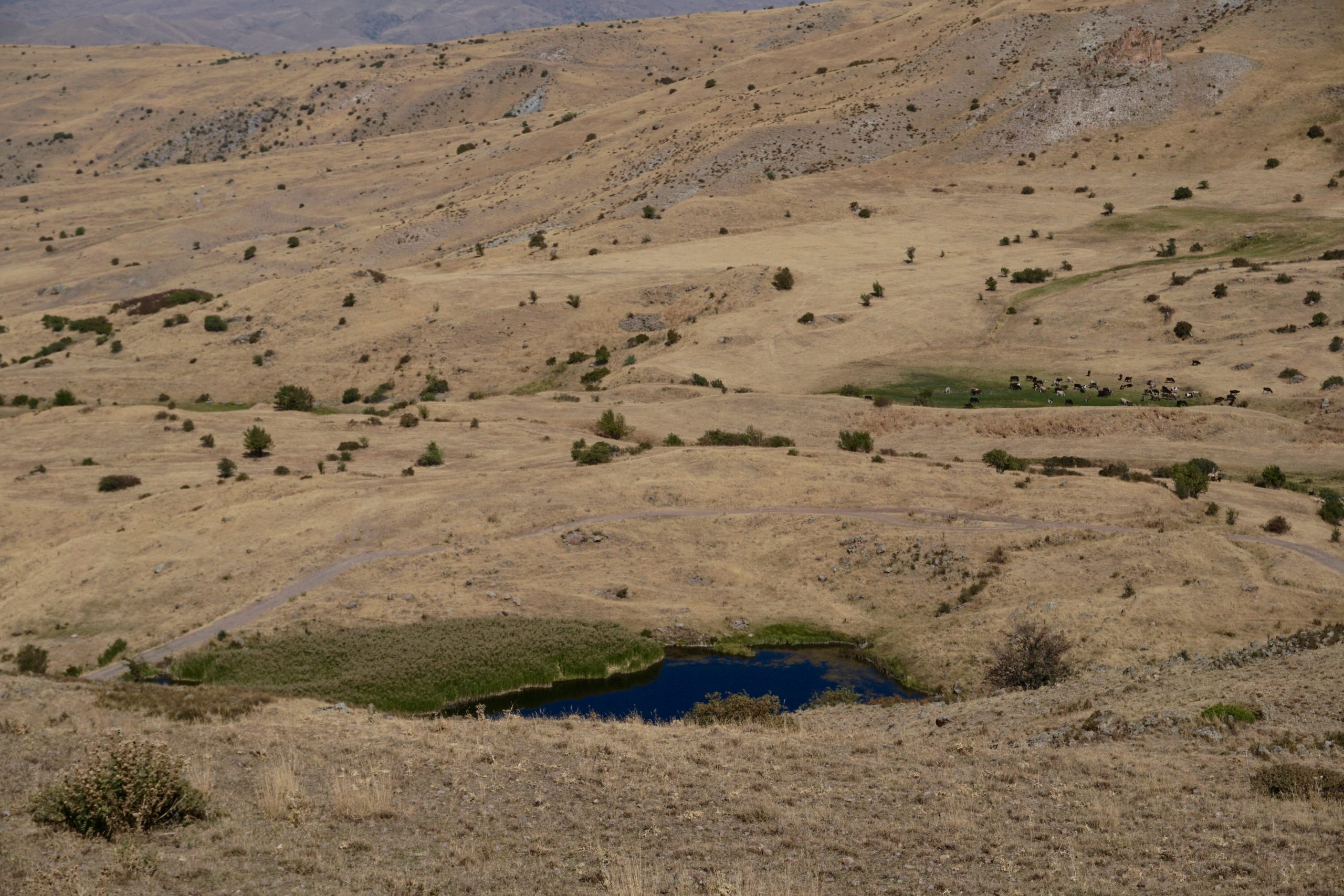 smaller lake in bigger landscape
smaller lake in bigger landscapeAfterwards I walked through Artavan. According to Wikepdia, 321 people live there. There is a shop
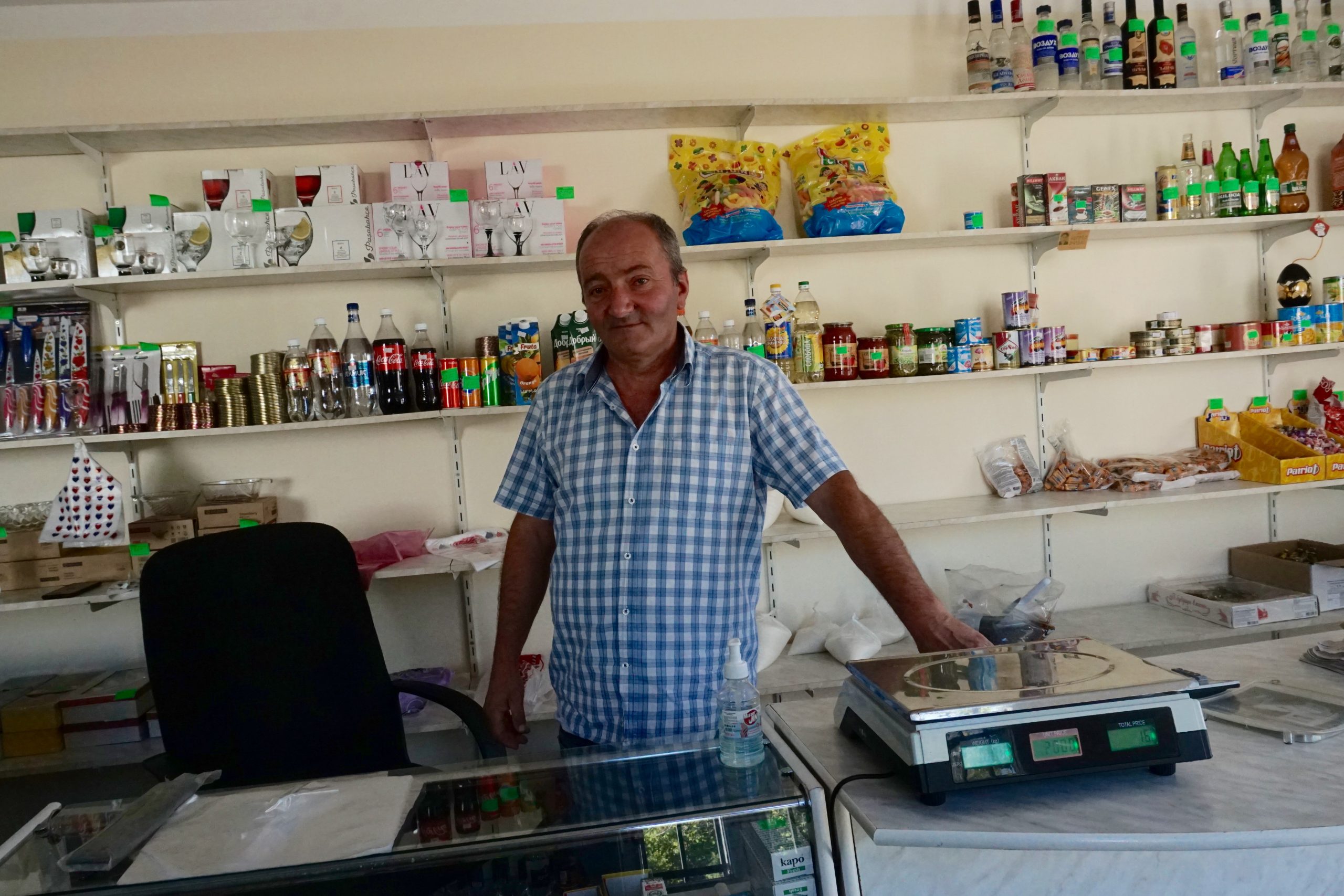 only shop in Artavan with salesman
only shop in Artavan with salesman
The houses were mostly at a distance from each other and you hardly saw people together, rather just individuals.
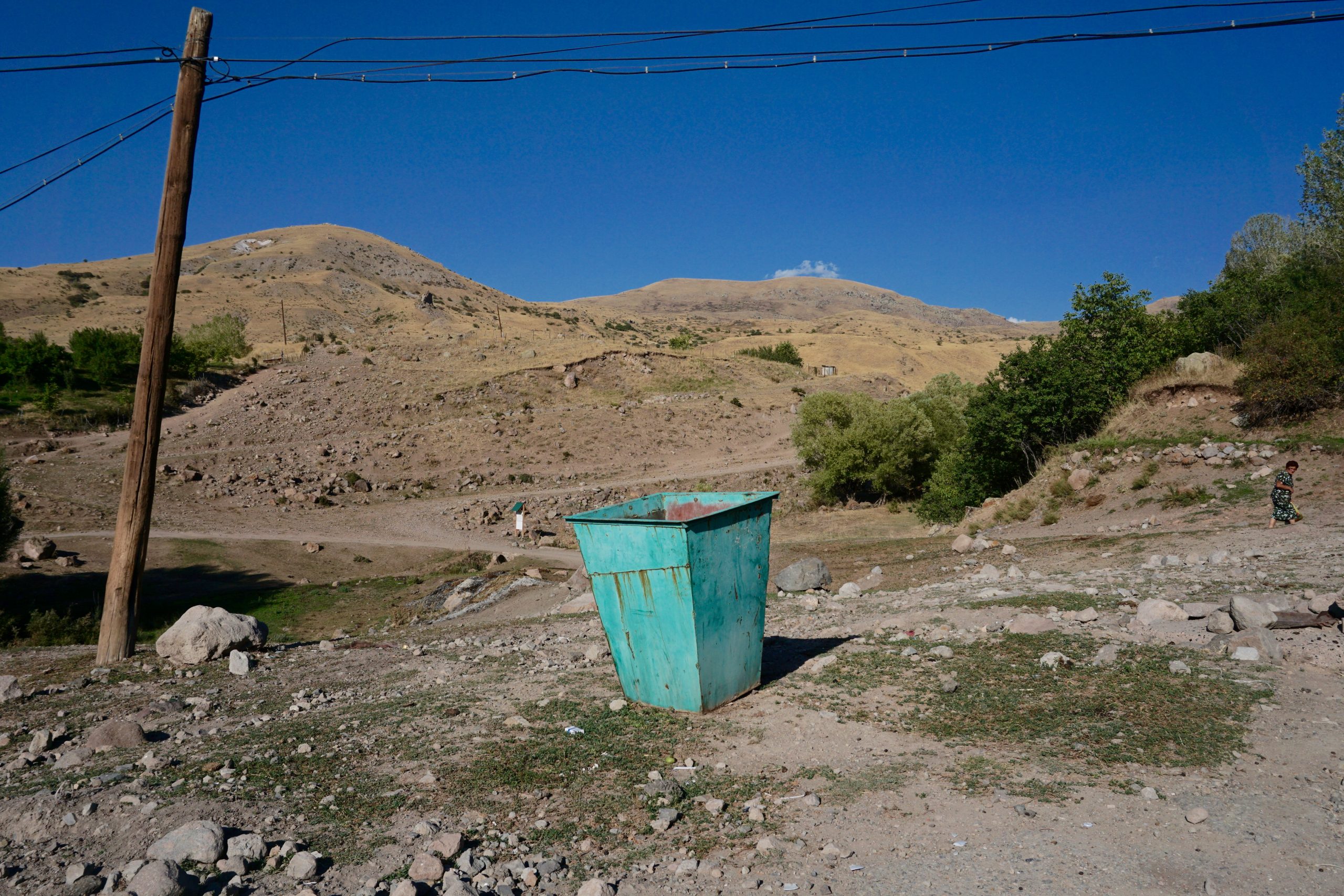 single woman on the right side on the photo
single woman on the right side on the photo
Though I didn’t find the atmosphere unpleasant. Maybe also because of the sunshine. I can’t really imagine what it looks like in the cold season and with lots of rain. I don’t know what exactly the people do, but they obviously have many animals, fields and large orchards and vegetable gardens. The houses and everything on the properties look very patched together. On the one hand, it’s good that everything can still be used somehow, but on the other hand, it depresses me a bit.
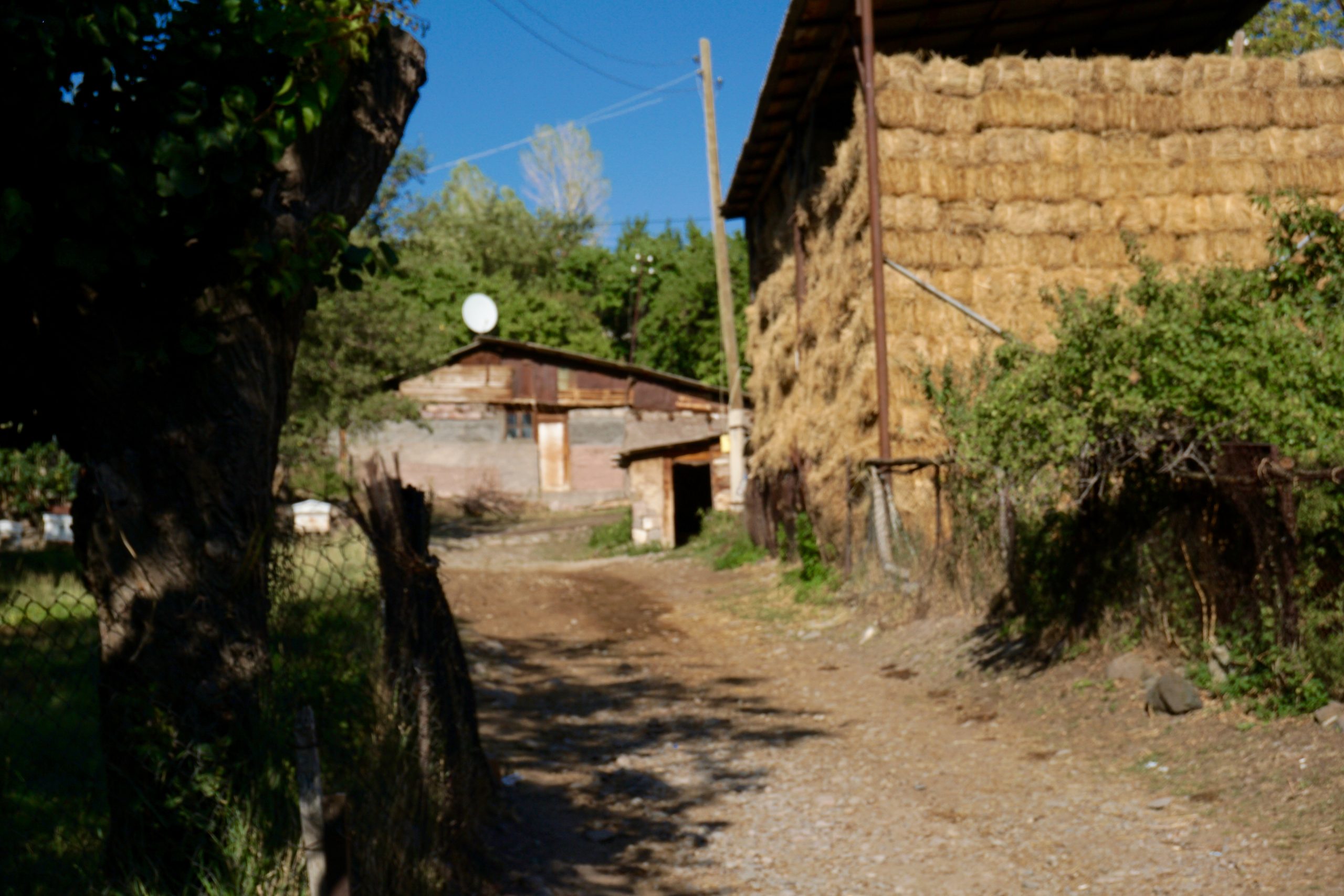 House with straw storage
House with straw storage
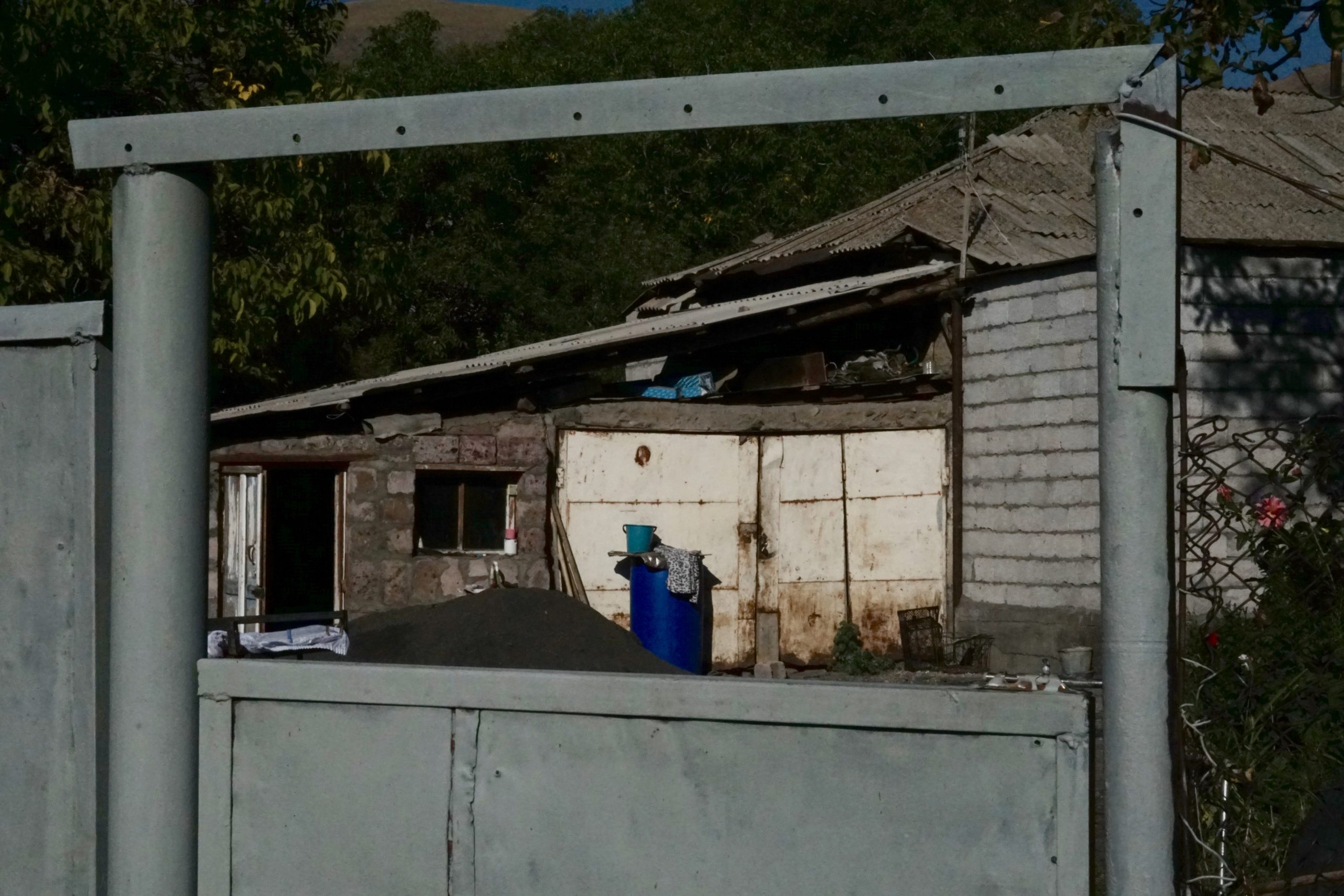 Many patches
Many patches
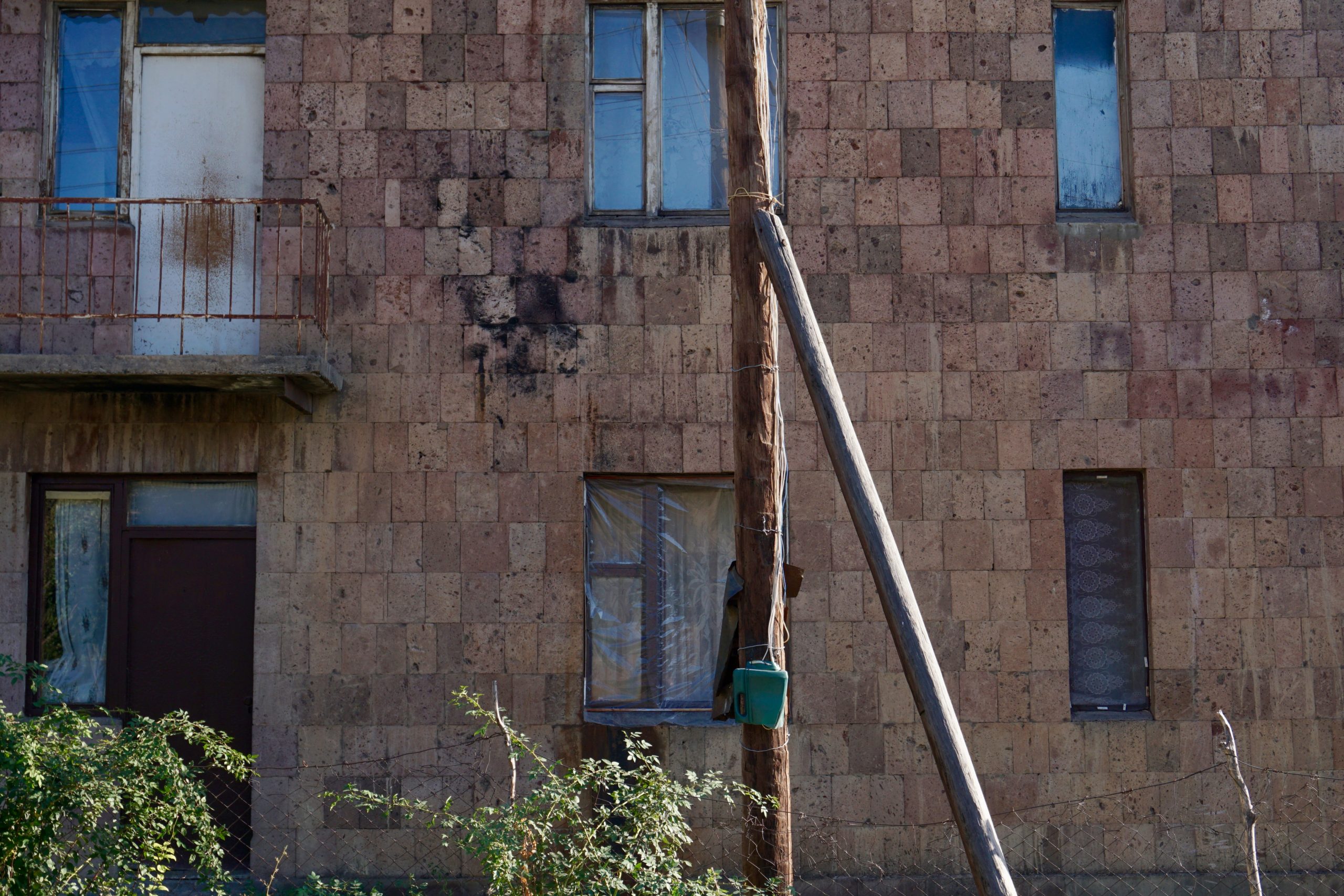 Here I thought no-one would live there anymore – but on the contrary
Here I thought no-one would live there anymore – but on the contrary
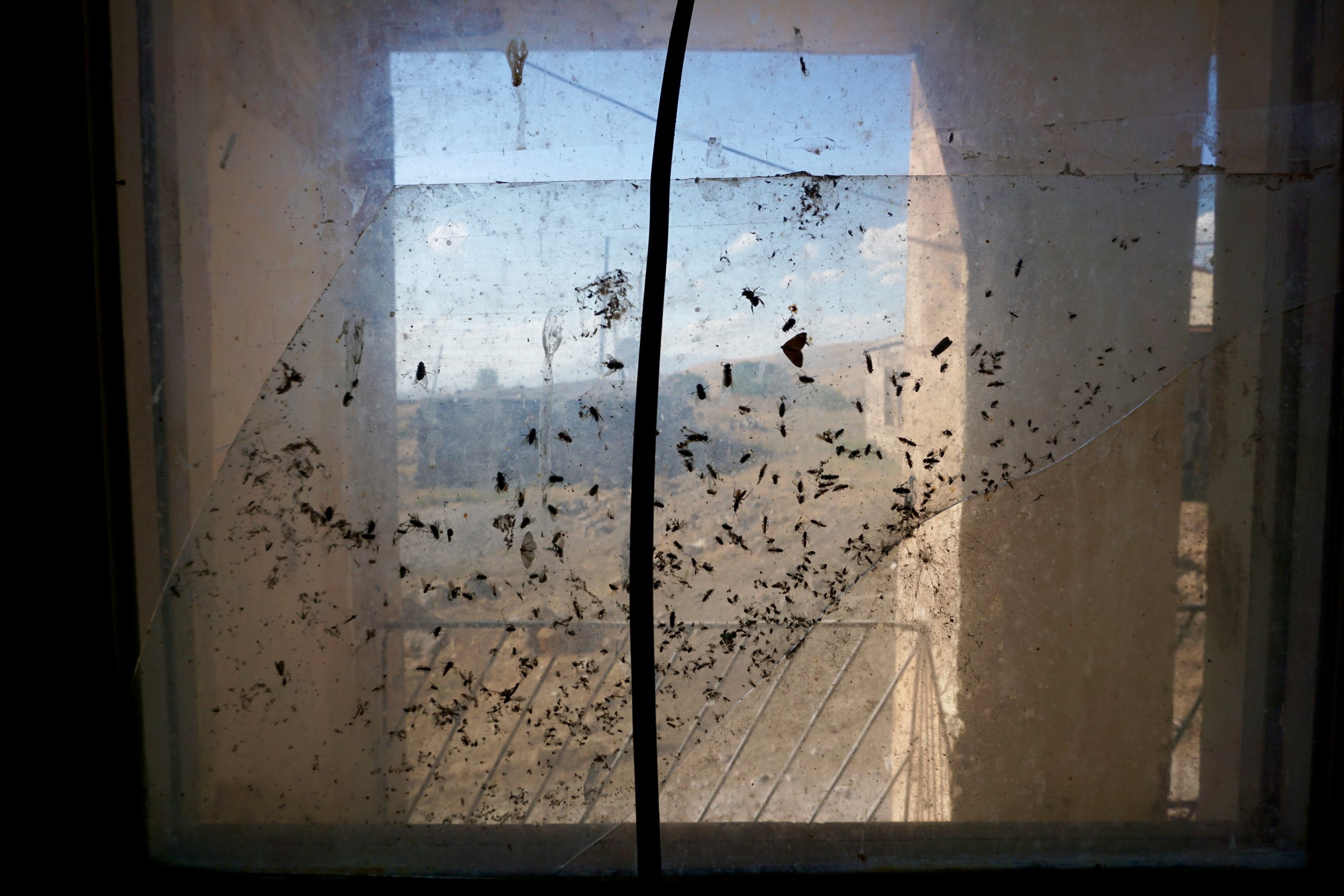 no more intact window
no more intact window
But now to my hosts Asgherik and Sambat. The next day, they take me to the minibus in the next village and have dressed up for it.
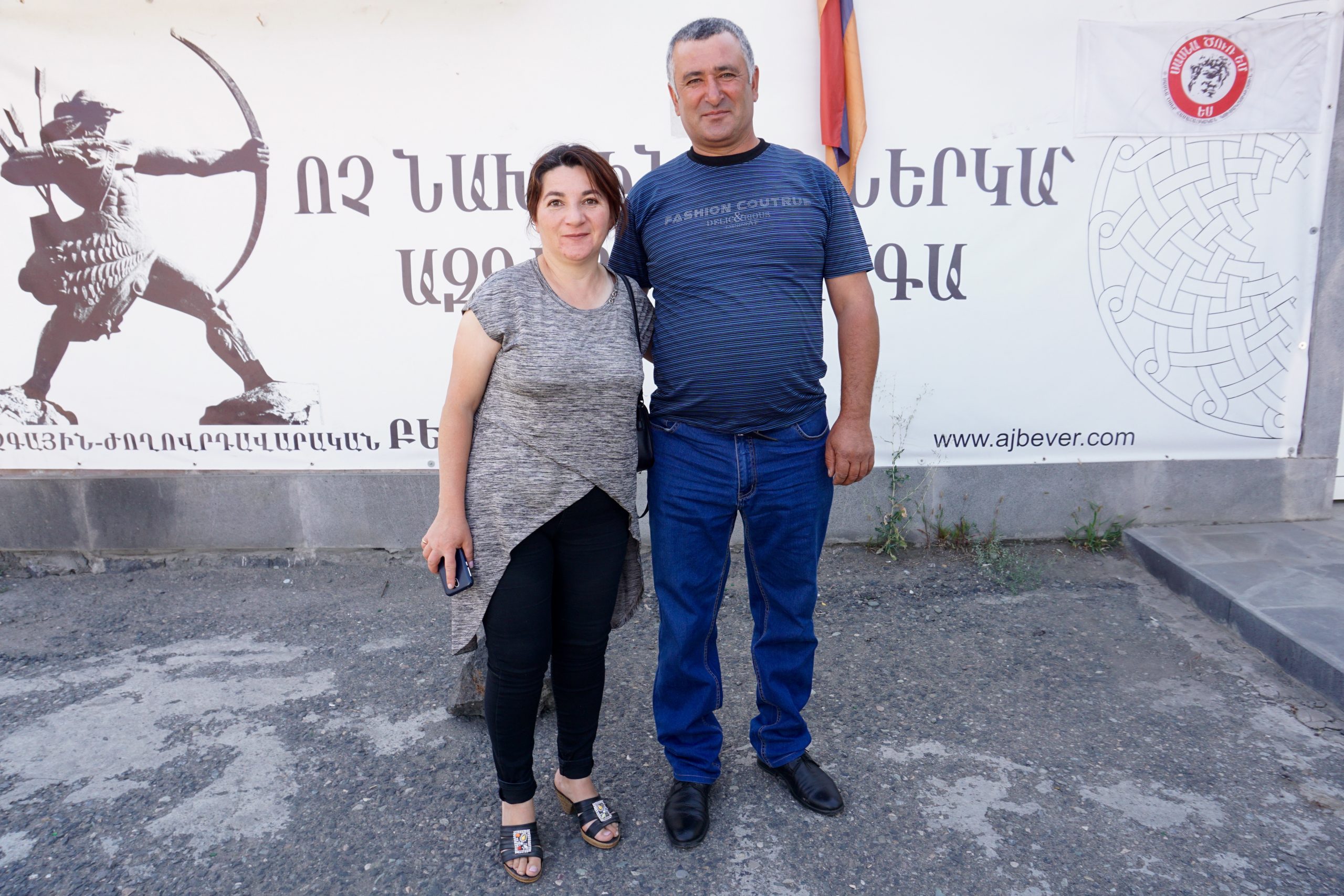 hosts
hosts
They have a son, I think he’s in the military. And engaged to Nurne.
Asgherik baked fresh flatbread every morning. And all the treasures from her garden she preserves or otherwise preserves. Here she is in front of her pantry shelves
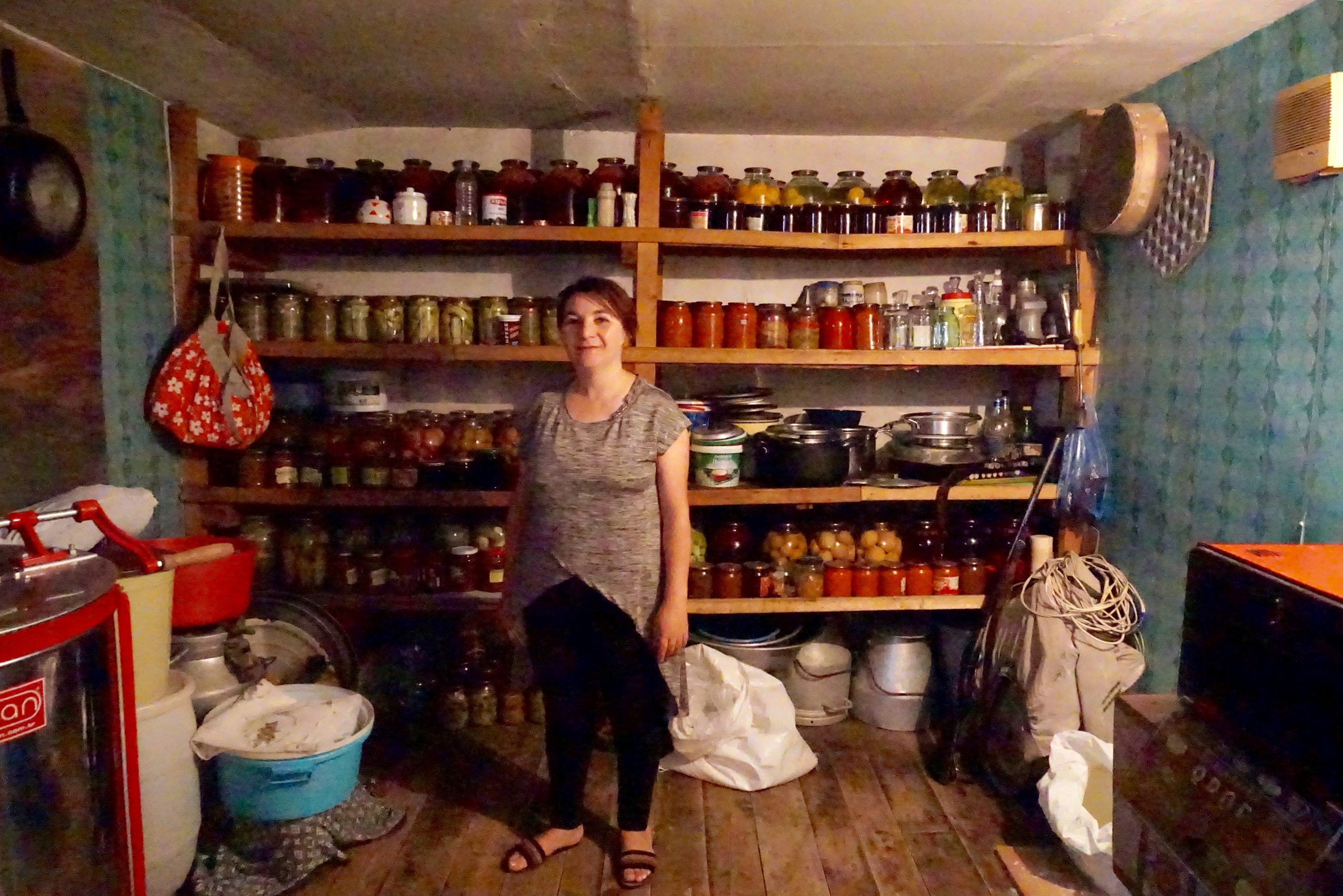 on the right the pita bread oven
on the right the pita bread oven
I tried to find expressions and words in Armenian, but the translation programme (tried 2) often gives different results than what people really say and then you don’t understand me. However, when I have something said to me, it sticks hard in my head if I haven’t already seen it written. In the morning I tried to learn my breakfast stuff.
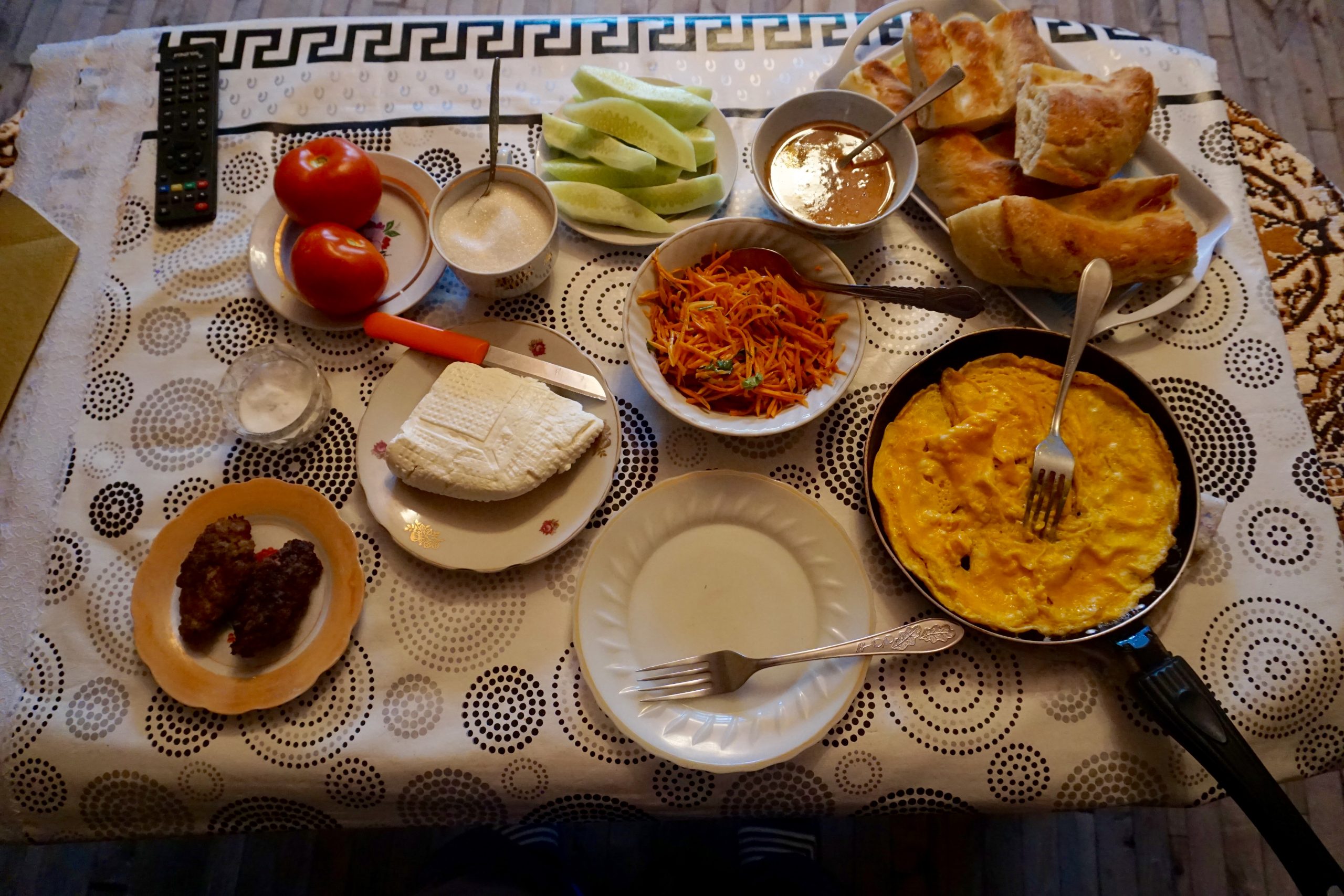 breakfast
breakfast
egg = Djuus o.ä.
bread = Kat
milk = Hat
honey = Meghr
cheese = Panir
carrots = Ghazar
joghurt = Madzun
meat ball = Kotlett
juice = Kampott
Armenian is an Indo-European language – and so sometimes you find something that you know from somewhere else (Panir, like Indian cheese, and carrots are called Ghajjar in Hindi, so very similar).
Anyway, it doesn’t work very well – and I’m very happy when I find English speakers. With the translation app, the other person often looks too confused and then so do I.
